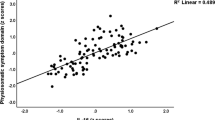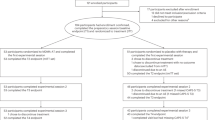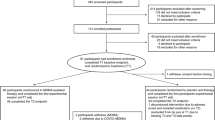Abstract
Although bone marrow transplantation (BMT) has become standard therapy for many life-threatening disorders of childhood, there is little research on the psychosocial impact of BMT on siblings of children undergoing BMT. Such siblings face issues common to any family with a chronic illness. However, the psychological impact on the family is intensified because two family members, usually children, are subjected to intrusive medical procedures. Investigators had earlier noted that sibling donors may be at risk for behavioral problems and anxiety, while nondonors may experience ambivalent feelings of disappointment and relief. It was suggested that psychosocial stages of BMT may parallel the medical transplant process, with high levels of stress experienced pre-BMT, during hospitalization, and post-discharge. Our own group has recently conducted more systematic investigations on the psychosocial effects of BMT on donor vs nondonor siblings of surviving pediatric BMT patients. We found that sibling donors showed significantly more anxiety, lower self-esteem, and more adaptive skills in school than nondonors. Nondonors, on the other hand, showed significantly more school problems. One third of the siblings in each group reported a moderate level of post-traumatic stress. Taken together, our research indicates that BMT affects the life of the child at home and at school and that post-traumatic stress symptomatology is a component of the psychological reaction in siblings. The psychosocial adjustment of siblings is a critical area of investigation in BMT populations. Parents need to know that the BMT process affects every member of the family system, and both parents and professionals need to direct more emotional support and attention to siblings. Studies are needed that focus on interventions designed to reduce levels of sibling psychosocial maladjustment. The psychosocial developmental model of post- traumatic stress disorder is a viable theoretical model that may be used to guide future research.
This is a preview of subscription content, access via your institution
Access options
Subscribe to this journal
Receive 12 print issues and online access
$259.00 per year
only $21.58 per issue
Buy this article
- Purchase on Springer Link
- Instant access to full article PDF
Prices may be subject to local taxes which are calculated during checkout
Similar content being viewed by others
Author information
Authors and Affiliations
Rights and permissions
About this article
Cite this article
Packman, W. Psychosocial impact of pediatric BMT on siblings. Bone Marrow Transplant 24, 701–706 (1999). https://doi.org/10.1038/sj.bmt.1701997
Received:
Accepted:
Published:
Issue Date:
DOI: https://doi.org/10.1038/sj.bmt.1701997
Keywords
This article is cited by
-
Pediatric Hematopoietic Cell Transplantation: A Longitudinal Assessment of Health-Related Quality of Life of Pediatric Donors
Journal of Clinical Psychology in Medical Settings (2023)
-
Hematopoietic stem cell donation: psychological perspectives of pediatric sibling donors and their parents
Bone Marrow Transplantation (2015)
-
Psychological effects of hematopoietic SCT on pediatric patients, siblings and parents: a review
Bone Marrow Transplantation (2010)
-
Saviour Siblings And Collective Family Interests
Monash Bioethics Review (2010)
-
Palliative care in BMT
Bone Marrow Transplantation (2009)



